Managing Anxiety with Ayurveda: Natural Remedies for Holistic Health
By Dennis Bluthardt at Namaste Studios
Anxiety is an epidemic problem in modern society, and it does not discriminate against whom it affects. As most know, we live in a fast-paced world: the hustle is real. And for some of us, we add everyday challenges to the mix or live with a mental health disorder. It’s no wonder many of us are looking for solid ways to alleviate the all-too-often-experienced symptoms of anxiety. We do what we can to ease through the day. Most often, we’ve doled out recommendations for medications from our practitioners or sought therapy, and all are well and good, or at least an effort. More importantly, and much more interestingly, many of us are moving toward seeking help that addresses and deals holistically with the root cause of our problems.
Ayurveda, the oldest known system of medicine, which was gifted to humanity from the ancient seers of India, provides a slightly different model by comparison to modern medicine (a.k.a. the West) from which individuals are offered a solution to experience a decrease in their dis-ease.
The system addresses one’s being as a being (i.e., a whole) and considers that, like it or not, we live on Earth. In doing so, it applies the logic of the cosmos, the building blocks of everything, and the natural world to help individuals understand, quite literally, the energetics of their minds and bodies. This is exciting news. The following is the deal, which you’ve heard before. We all know food is medicine. Okay, and? Well, readers can expect a handful. Fingers crossed you “digest this,” and it quells more than your curiosity. Bon appétit!
Stay tuned for …
- The basics about what Ayurveda is (some specifics)
- The basics of Tridosha theory
- The particulars on dinacharya (i.e., how to live)
- The details on otherwise publicized general diet tips
- The not-so-otherwise-publicized-yet-necessary diet tips that pertain to dosha predominance (Note: This article is not to be mistaken with medical advice.)
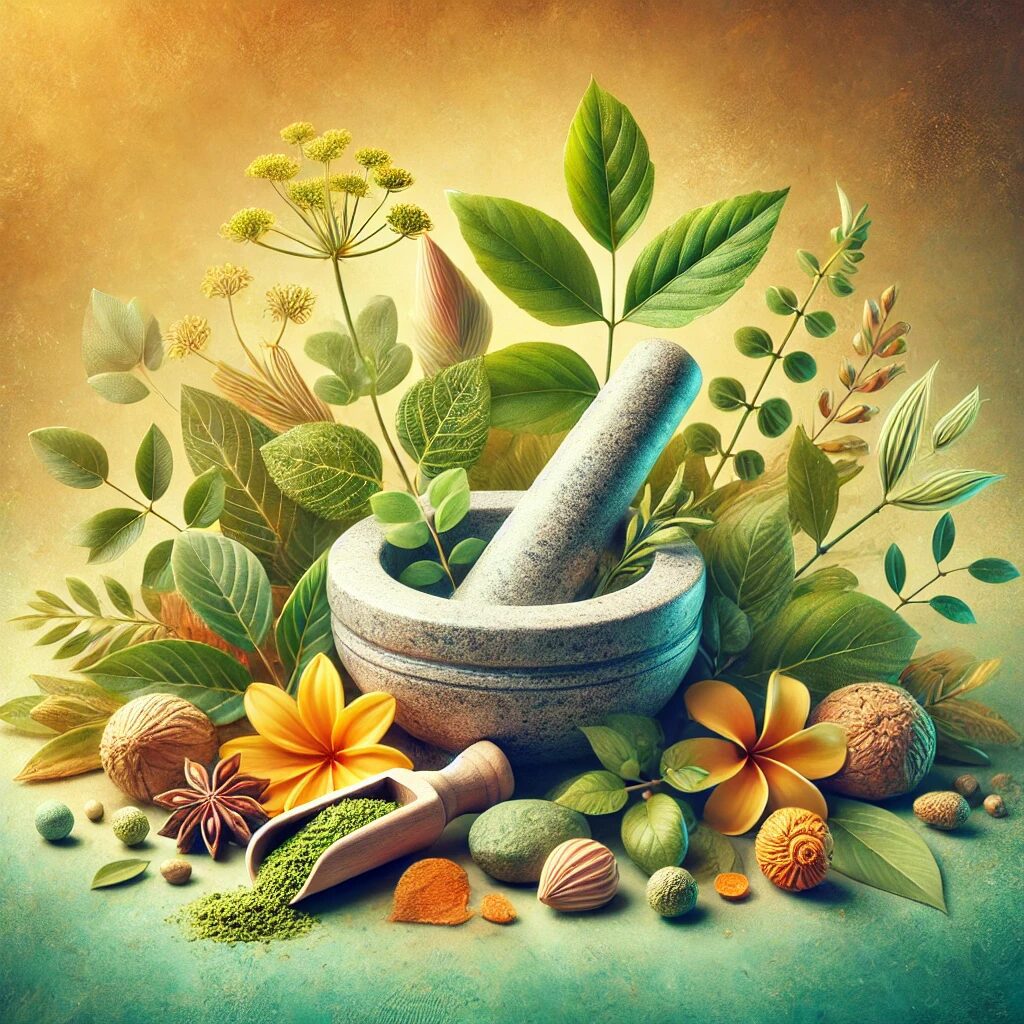
Natural Remedies for Managing Anxiety in Ayurveda
In Ayurveda, the Indian “science of health,” specific natural substances are used to help with anxiety. Some of the best herbs for anxiety are ashwagandha and the “king of Ayurvedic herbs,” Brahmi (also suitable for increased memory function and cognitive ability). The formula Adapto Calm also contains nutrients that improve resistance to stress so you can feel your best.
A healthy diet impacts anxiety levels and well-being. Making a healthy diet a priority can make it easy to reduce the chance of nutrient deficiency and promote good overall health. Eating habits should be changed to meat-free, whole grain-focused diets where animal fats are not consumed regularly.
Another essential part of the fight against stress and as an aid in overall mental health is fighting the thoughts of anxiety. Through different spiritual practices, these courses will aid you in your journey to become stress-free. Yoga and deep breathing can increase physical activity and interdomain. Race therapy fights mindfulness to help promote a positive mental and physical state.
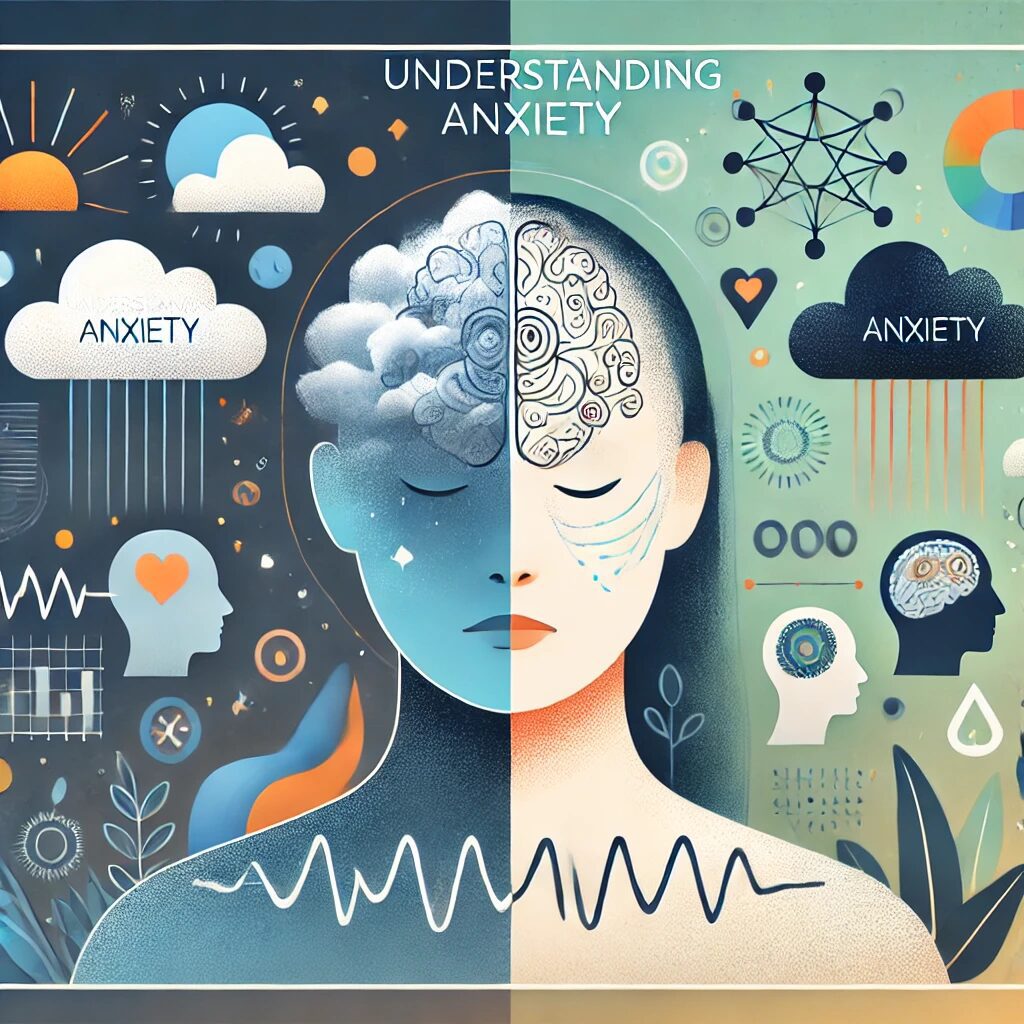
Understanding Anxiety: Its Impact on Mental Wellness
Anxiety is a natural reaction we all have to stress. It’s that feeling of worry, fear, or unease that we all experience occasionally. For some of us, that sense of unease occurs more frequently, such as generalized anxiety disorder, panic disorder, and social anxiety disorder.
The symptoms of anxiety can include a butterfly feeling in our stomach, sweating, restlessness, a pounding heartbeat, and problems sleeping. These symptoms may intensify during specific periods or when we find ourselves in particular situations. Sometimes, there may be no apparent reason why we’re anxious.
Those heightened feelings of worry and fear can seriously affect our mental wellness and, more broadly, our quality of life. For some, these debilitating feelings come and go. Still, for others, these feelings of worry, fear, or unease are persistent or recurring, making it difficult for them to do everyday activities, maintain relationships, or wreak havoc on their ability to continue to attend class or excel in the workplace. Generalized anxiety disorder impacts our mental health, particularly as it relates to cyclical depression and overall burnout.
We often watch scenes in movies like that infamous ‘Gone with the Wind’ moment.
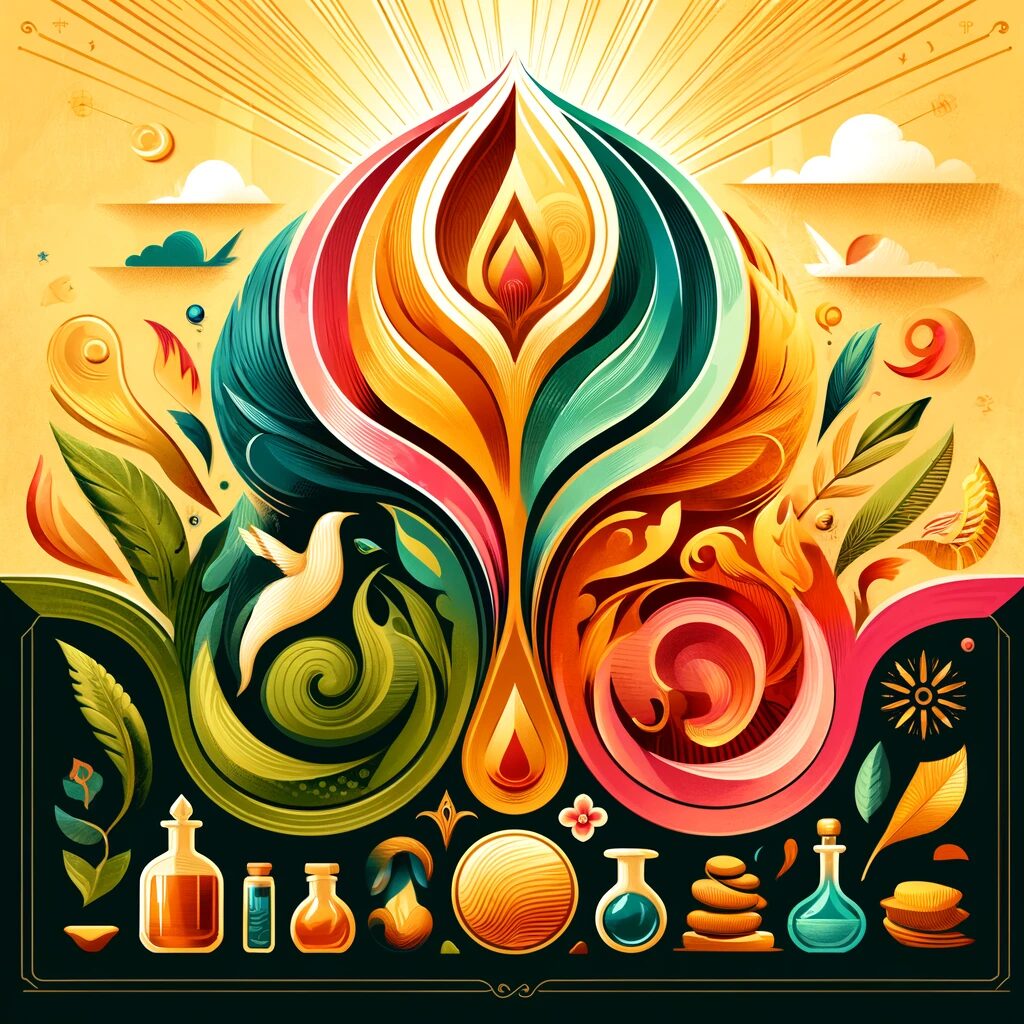
The Principles of Ayurveda
Ayurveda: The “science of life” that evolved on the Indian subcontinent over 3,000 years ago encapsulates a wisdom millennium ahead of its time for personalizing medicine. Ayurveda is a compilation of diverse Siddha Yoga texts, such as the Vedas, that outline rich principles of life, herbal remedies, lifestyle practices, exercises, and religious ceremonies people follow to optimize physical and mental vibrancy and, thus, longevity. At the crux of this human optimization model are three biological pillars of health, or doshas, Vata, Pitta, Kapha, that often manifested from five elements (pancha mahabhutas): Earth (bhumi, Prithvi), water (jala, aap), fire (Agni, tej), air (vayu, Pawan), and space or ether (akasha, you).
With a basic knowledge of which doshas (personal physiological blueprint) dominate one’s being (physical and mental), tailored recommendations for meals, yoga (Christians may say, “HIS yoga”), and lifestyle strategies (i.e., sleeping and fasting timing) are often conveyed to enable one to learn more about how to experience health and know thyself.
Indeed, like Siddha Yoga, Ayurveda stresses the close interconnectedness between the mind and body, and even the spirit. For example, specific mental and emotional states or practices, such as meditation, elicit physical alterations to foster health, and vice versa. Ayurveda recognizes that one cannot prescribe a drug to target singular body systems and often does not even claim that one body system is/has the problem; for example, what good is giving Viagra if a man is mentally sick? Similarly, what good will taking a selective serotonin reuptake inhibitor class drug have for a depressive mind when it is vital for a body to be free from inflammation, or even certain pathogenic foods contributing to chronic inflammation, to be mentally right? Also, do you seek an antidepressant for your anxiety and then also await another Pharma solution for your headaches, IBS-D, lactose intolerance, and motility issues? There is another way to read these blogs. Smiles! Each physical disruption is rooted in the mind to some degree; after all, one mind operates these surgeries. These ayurvedic solutions of meditation and fasting are the foundational two legs of Siddhars’ profound medical model. Indeed, despite many similarities between Siddha and Ayurveda medical systems (and Tibetan and Chinese also derive from Ayurveda), Siddha is the primary source upon which Ayurveda was ultimately born as a child. I do not ignore the child, and this journey certainly meets the child meritoriously in the coming transition through Singapore, where encountered Siddhars (some potentially possessed by evil spirits) will share the beautiful, ornate Siddhars’ storytelling, e.g., Siddhar Agattiyar’s blue peacock mount and Siddhar Bhogar’s temple dweller, the gold elixir-consuming Rhesus monkey. Yet, of course, at journey’s end is one lost wisdom.
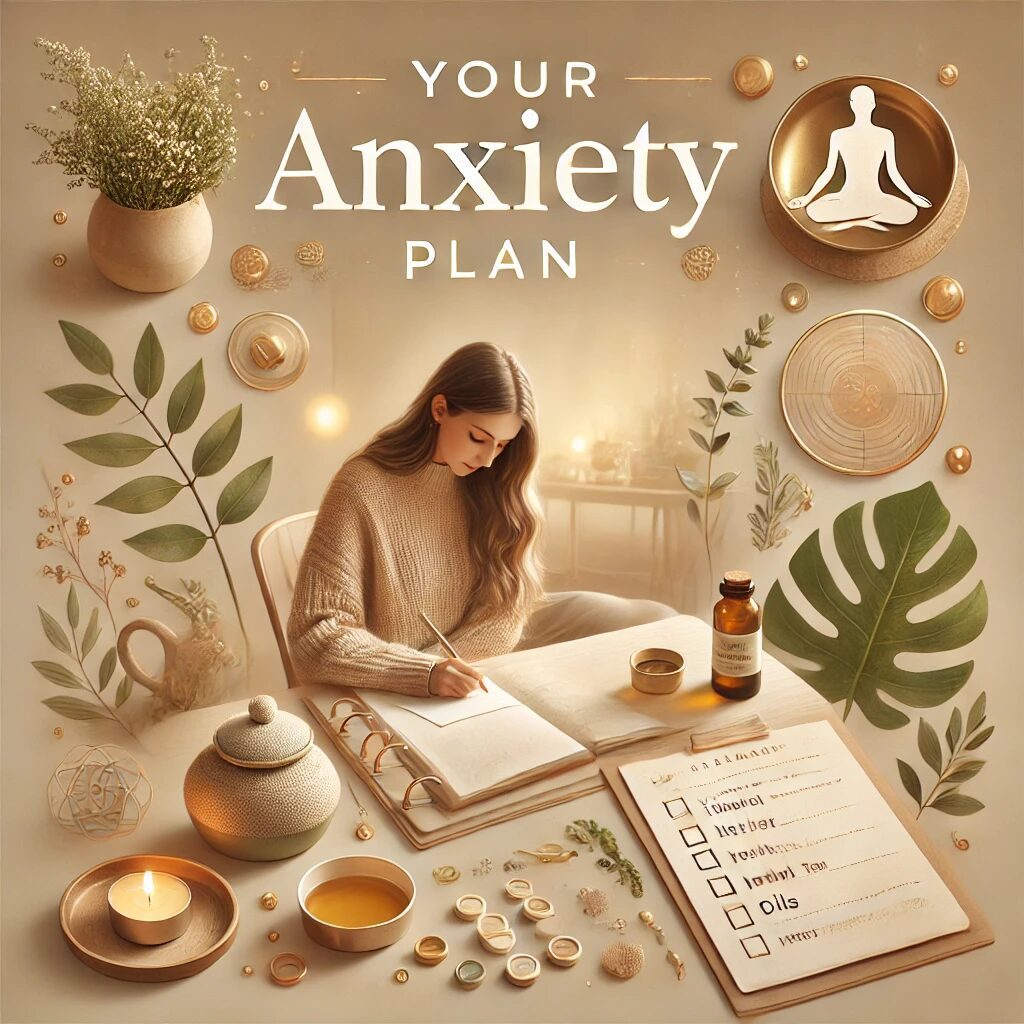
Creating a Personalized Ayurvedic Plan for Anxiety Management
In Ayurvedic medicine, the three doshas, Vata, Pitta, and Kapha, refer to the fundamental energies that make up our physical and mental selves. We each have a unique combination of these doshas that influence our body, mind, and personality and our lifelong susceptibility to conditions like anxiety.
- Understanding your dosha can help you make sense of where your anxiety is coming from. A Vata-dominant person might experience anxiety as restlessness or fear, while a Pitta individual instinctively feels anxiety as irritability and frustration.
Consider the following to align your herbal remedies and practices to your dosha.
- This dosha is best kept cool and calm for Vata types, as its windy nature can carry you away into the outer hemisphere of chronic tension and worry. Stay grounded with ‘down to earth’ calming herbs such as ashwagandha and chamomile.
- Pitta types, this fiery dosha means that it can come with a temper, and so Pitta types are best kept cool with anti-inflammatory cooling herbs such as mint and coriander.
- Kapha types are best kept active, moving, and motivating. Anxiety associated with this dosha can appear more like a lack of stimulation, so Kapha types do well with heating remedies and invigorating herbs like ginger and black pepper.
Also, practice these lifestyle practices tailored to your dosha:
- Vata types should practice grounding activities such as gentle yoga or meditation. Pitta types should opt for cooling and calming activities such as swimming or walking in the park. Kapha types could reduce anxiety levels through active practices that inspire and revive them, such as cardio, a Latin-American Dancing class, or a fiery morning run on the beach.
Generated by unwelcome stress or through understanding how the type of anxiety that you experience correlates to the types of nutrients, foods, and medicines that may be aligned with your dosha, you can begin to provide your constitution with typical nourishment for your dosha and approach the presentation of anxiety patterns in the body and mind through a more holistic pathway of understanding.
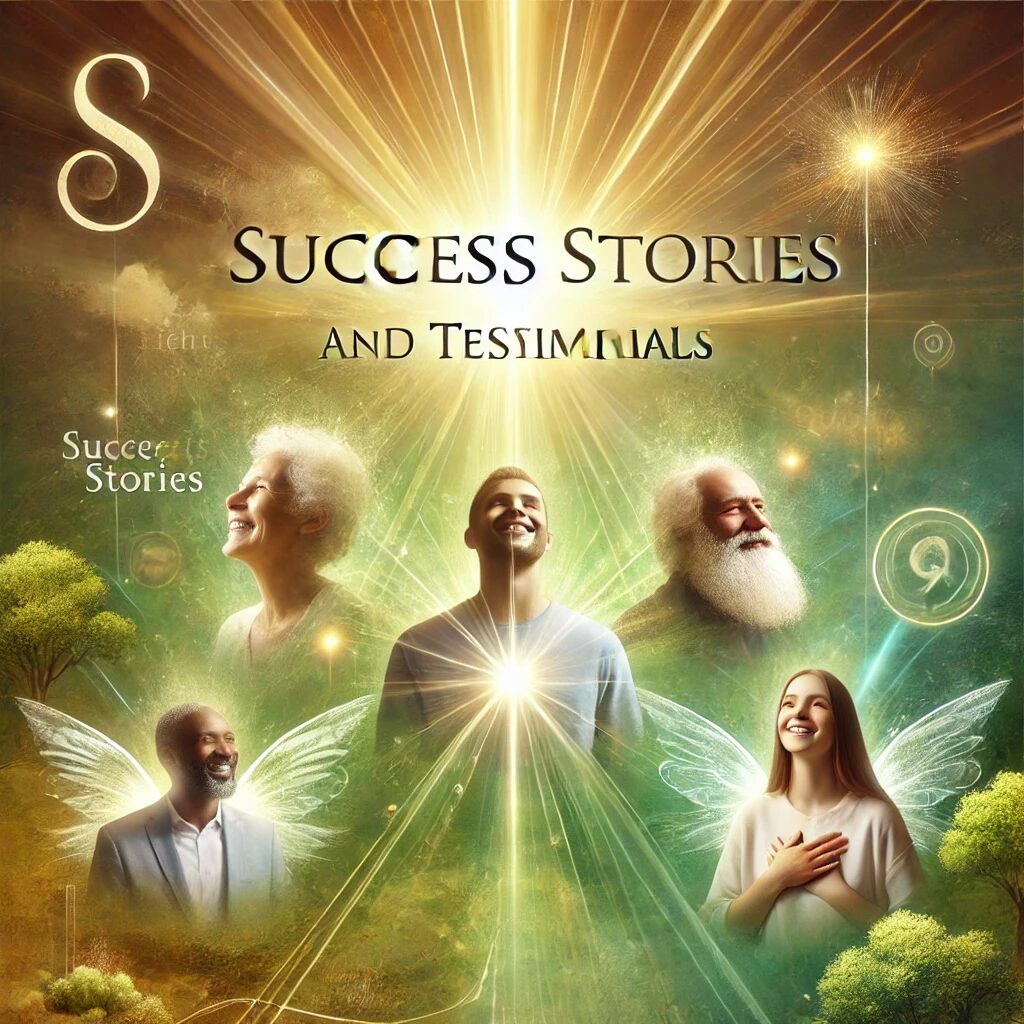
Success Stories and Testimonials
“Ayurveda has been used for over 5,000 years to support health and wellness in India, and, at its foundation, it is all about a holistic approach to well-being, encompassing all elements, the physical, the mental, the spiritual of life. Its principles have been adopted worldwide, and many people have added elements to their lives to help manage their ailments. For example, I know one young woman called Priya who said that doing yoga (which falls under Ayurveda) daily and some semi-regular meditation helped her feel happier. It helped her manage her feelings of anxiety and bring back some control.
Ayurvedic doctors speak a lot about doshas, referring to them as “vata” or “pitta,” for example. This breaks down to your constitution. Each person has a unique body type, with some people being more ‘airy,’ for instance (light on their feet, don’t put on weight, quick to respond, talk quickly, etc.), and others being more ‘earthy’ or grounded. The point of Ayurveda is to learn what constitution you are, understand what you best identify with, and then change and adapt your life in ways that suit you. “Dr. Ravi Sarma, an Ayurvedic doctor, said that “if we know that we’re a certain constitution, we will have a tendency to get certain illnesses, so if we know that we will have that tendency, we can prevent that from happening,” and he added that “foodies, beverages, even breathing, doing breathing exercises can be beneficial for foodies.”‘
Ayurveda is an ancient Indian system of medicine that brings a unique, holistic perspective to the experience of anxiety. Like all others, this condition arises due to imbalances in the three pillars of life (mind, body, and spirit). This underscores the point that anxiety is more than just a mental thing.’ It’s a ‘you’ thing. It involves every aspect of your being: your dosha, mind constitution, diet, lifestyle, relationships, the whole shebang. So, what better way to tackle the issue of anxiety than to reveal and treat its root cause(s) rather than addressing and alleviating the symptoms, as allopathic medicine tends to do?
Anxiety is a part of you, and that’s okay (for now). You will get through it and to the other side of it. How? Yoga, meditation, herbs. Sounds simplistic. Yes, yoga and meditation techniques can help, along with specific herbal supplements known for their anti-anxiety agents. Ashwagandha is a big one. Brahmi brings another dimension and type of calmness to the mix, a cool, clearness of consciousness that no other herb seems to get.
Once you determine what physiologically makes you anxious, you can create a plant-based and doshic lifestyle diet plan.
To learn more, visit Ayurveda at Namaste Studios to book an Ayurveda session. Additionally, you can find more of our Ayurveda Blogs here.
For a Limited Time: Get your NEW MOON JOURNAL for a massive discount at Amazon here!
Bonus for blog readers: Watch how this Hybrid AI chatbot can save thousands of hours interacting with your clients. Click here for a FREE WEBINAR – It’s AMAZING!





Good